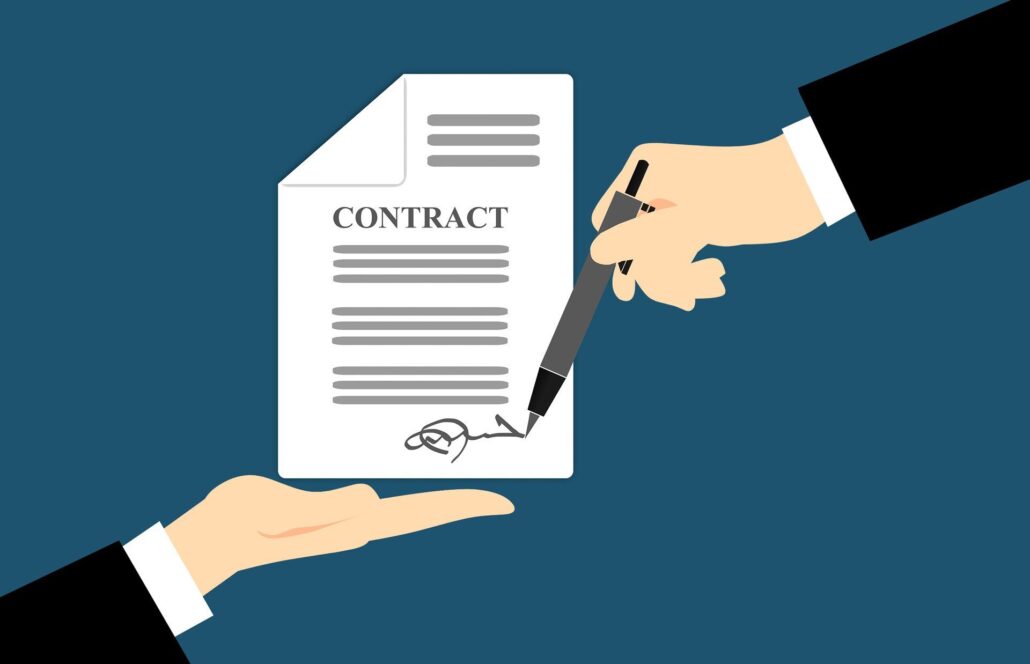8 Tips for Protecting Your Paisley Business from a Data Breach
January 18, 2022Movember from Enva
January 18, 2022Wondering how you can protect your business in Paisley against a commercial dispute? We explore some ideas, here…
Paisley town centre is home to over 600 businesses, all of which help to form the tapestry of this vibrant and historic town on the border of Glasgow. If you’re one of the lucky owners of a business in this unique town, you’ll hopefully have a great relationship with your neighbours, employees and clients, but what if that changes?
Commercial law is full to the brim with ways your business may be caught out. For example, contract law is incredibly complicated, so a contract dispute law firm can provide you with detailed advice for protecting your Paisley business against a commercial dispute.
Seeking a solicitor to guide you through commercial law is paramount. They’ll be able to take you through it all in detail, so to find out the sorts of things they’ll help you through, read on…

10 Ways Your Solicitor Make Protect Your Paisley Business from a Commercial Dispute
1. Read Reviews Beforehand
These days, we rarely buy a product without first doing our research and reading reviews, and the same should go for getting onboard with a new client or employee. Before accepting a new client, do a little digging – often, a quick internet search is enough to unearth red flags such as non-payments and devious tactics.
Similarly, when hiring a new employee, make sure that you conduct all the appropriate background checks, as well as insisting on references to make sure that he or she is exactly who they say they are, and that they don’t have a history of initiating disputes.
2. Hire a Solicitor for Contracts
All too often, business owners make the mistake of believing that a simple boilerplate agreement is enough to protect their interests when onboarding a new client or employee. Unfortunately, this often leads them wide open to abuse and legal loopholes. Invest in the services of a specialist solicitor to make sure that all of your contracts are watertight, and that they protect you and your business adequately.
3. Implement Risk Assessments
Having proper risk assessments in place is absolutely essential for any business, as these inform you of the things that can go wrong. More importantly, they’ll give you the opportunity to put contingency plans in place to stop issues turning into disasters.
If you’ve never put together a risk assessment before, it’s worth hiring the services of a professional. They will be experts in identifying the areas in which your business may be at risk of litigation.
4. Have a Plan in Place
It’s a rare business that doesn’t run into some kind of dispute at some point and, while this doesn’t necessarily spell disaster, it’s a really good idea to have a proper dispute resolution plan in place. It’s recommended that you invest in the services of a specialist here who will be able to identify areas where your company may be at risk of a dispute, and to formulate a process for dealing with this as and when it happens.
5. Good on Paper

Your best defense against problems arising from a dispute is to collate and keep evidence at all times. With either a client or an employee, get into the habit of making a record of any contentious conversations, and be sure to keep any documentation. Even if you’re operating a paperless office, you can keep records of all documents by scanning them and keeping them on file digitally.
6. Practice Your Negotiating Skills
Brushing up on your negotiation skills (and training your staff) can help to prevent disputes from escalating, and save you a fortune in potential legal fees. In many cases, when a dispute arises, the individual raising the dispute simply wants to be ‘heard’ and to know that you understand their position. Being able to show empathy whilst negotiating a mutually acceptable resolution will help you to create a win-win situation for all involved.
7. Get it Covered
Having the right – and adequate – insurance for your business is absolutely essential when it comes to protecting against commercial disputes. When disputes arise, they’re not only time consuming and stressful, but can also be extremely expensive. Commercial litigation insurance will help to protect your business against bankruptcy in the face of a lengthy and expensive dispute.
8. Keep Employees Happy

Your biggest defense against employee disputes is to ensure that employee wellbeing is a priority, and that you have solid protocols in place in terms of inclusivity. In today’s world, employers are under increasing pressure to provide a safe, nurturing, and inclusive workplace and, by doing this, you can greatly reduce the risk of a dispute.
9. Safety in numbers
Collaboration is an incredibly useful tool for the small business, and allows for the sharing of ideas, services, and costs. This can also be really helpful in the face of commercial disputes; particularly for bricks and mortar businesses in Paisley who can team up in order to create a united front in the face of potential disputes.
10. Monitor and Review
In the modern world, technology and processes evolve at lightning speed, and it can often be a challenge to keep up. Get into the habit of regularly reviewing your business processes and protocols to help make sure that you are ahead of the curve and are, therefore, able to anticipate any potential issues and nip them in the bud before a problem arises.
Commercial Law is a Tricky Business
A commercial dispute can be a messy business and, in extreme cases, can lead to bankruptcy. The steps in this article will help you to safeguard your business against litigation, and keep you on the straight and narrow.
It’s also essential to retain the services of a contract dispute law firm, as this will allow you to act quickly should you find yourself faced with a commercial dispute.
Please be advised that this article is for general informational purposes only, and should not be used as a substitute for advice from a trained legal professional. Be sure to consult a legal professional or solicitor if you’re seeking advice about commercial law. We are not liable for risks or issues associated with using or acting upon the information on this site.
